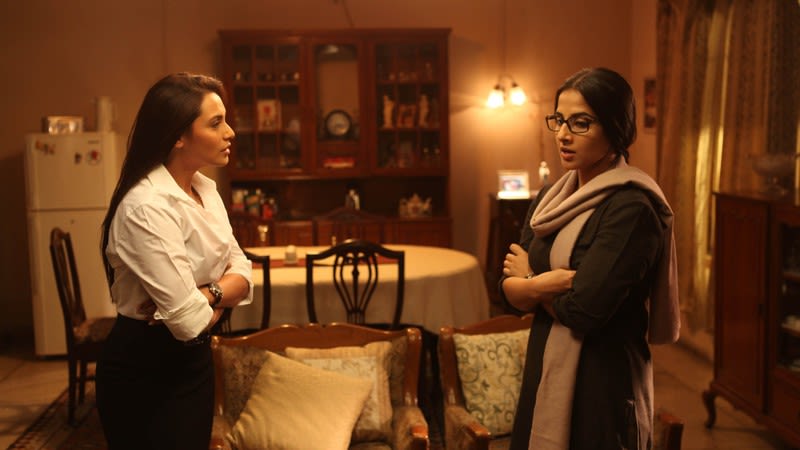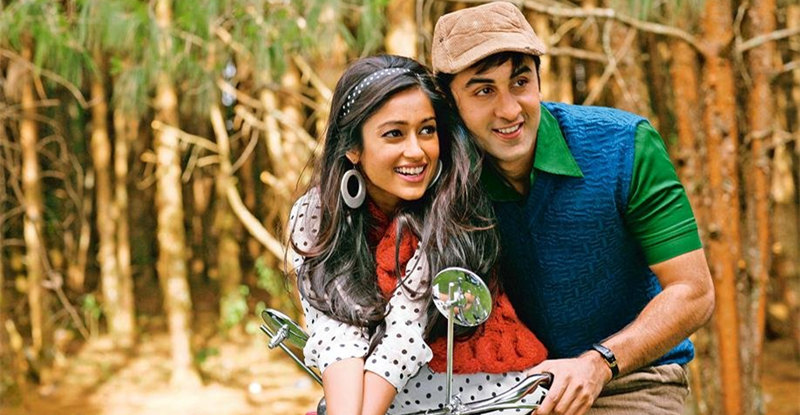“The Mighty Macs” sounds a little like “The Mighty Ducks,” which is unfortunate, because viewers might think they’re getting another lovable loser sports comedy like “The Bad News Bears.” But this 2009 film—based on the real story of Coach Cathy Rush and the Immaculata College women’s basketball team’s unlikely run for the national championship—is more like the female version of “Hoosiers.”
There are also plenty of nuns, as you might expect of a 500-student women’s school near Philadelphia that was founded by the Sisters, Servants of the Immaculate Heart of Mary. In 1972, when this story takes place, the school was on the verge of being sold because of insolvency. Today—in part, thanks to the success of the women’s basketball team—it’s a full-blown university of 4400 students, including men.
“The Mighty Macs” doesn’t have the intensity of “Hoosiers,” nor does it have the same narrative complexity or high level of ensemble acting. There are also a few too many inspirational speeches and motivational gimmicks incorporated into this David vs. Goliath tale, when more segments involving the young players might have served the narrative better. But if you’re a sucker for underdog stories and love rooting for a ragtag bunch that takes the nation by surprise, you’ll find that “The Mighty Macs” delivers the same emotional payoff as “Hoosiers.” Or “Rudy,” as a blurb from the real Rudy Ruetiger on the front cover reminds us.
Amazingly, “The Mighty Macs” (short for Immaculata, not a McDonald’s product) doesn’t tell the whole story. Rush, married to an NBA referee, wanted to coach rather than stay at home, and so she took the job at Immaculata, a school that was in danger of closing. The gym had burned down months before she came on the scene, and there was no budget for uniforms. The girls had to wear uniforms from their mothers’ era: plaited skirt uniforms and plaid cloth for belts. We get all of that in the film. But what we don’t get is that Rush didn’t just lead them to a single championship. The Women’s Basketball Hall of Fame coach—who wasn’t even Catholic—took teams to five national championship games, winning her first three years as coach. With a career record of 149-15, she has one of the best winning percentages in coaching (.909).
Rush makes several appearances on two bonus features, and while she doesn’t say whether she approved of choice of Carla Gugino to play her, the actress best known for her roles in “Spy Kids,” “Night at the Museum,” “Race to Witch Mountain, and “Entourage,” does a decent job. But there’s no escaping the Lifetime movie feel that this one has, and maybe that’s why so many of the supporting cast members can’t seem to muster the energy to break out of the stiff lines and scenes. The closest we come to an interesting character or performance is the Reverend Mother (Ellen Burstyn), who scowls her way through most of the film. Rush’s assistant coach, Sister Sunday (Marley Shelton), has moments that are of interest, but by and large she’s also a bit too bland. It’s as if they were all worried the real nuns would rap them on the knuckles with a ruler.
I’m thinking, too, about all of the sports films I’ve seen, and the teammates usually have more separating them than this one does. One young woman stands out—someone so poor that she has to wear plastic bags for socks under her boots—but the rest tend to blur. Maybe that’s the fault of the casting director, but I’m betting it’s more the fact that screenwriter-director Tim Chambers wanted to stay as close to the facts as possible. At the end we do get a rundown on what each of the players is doing now with her life, as a testimony to the impact that Rush had on them.
And yet, for all the things that are wrong with this film, like “Hoosiers,” “The Mighty Macs” still gets your blood going once the games take over, and the pay-off is just as emotional.
Video:
“The Mighty Macs” is presented in 2.35:1 anamorphic widescreen, and it looks surprisingly good on a large monitor. Colors are true-looking, skin tones are normal, and the slightly desaturated palette captures the visual design of the Seventies—even before Rush was spotted courtside in a full plaid jumpsuit.
Audio:
The audio is a standard English Dolby Digital 5.1, with subtitles in English, English SDH, and French. Surprisingly, since some of the women seem to be Latinas, there’s no Spanish audio or subtitle option. There’s nothing to praise or damn about this soundtrack. Like some of the characters, it’s just there.
Extras:
There are three deleted scenes (one of which, nuns doing a game cheer, was wisely omitted), along with two bonus features. “The Mighty Macs ESPN Segment” is a look back at the impact that Rush had on the game of women’s basketball—so good that most will wish it were longer than six minutes. Then there’s “The Making of The Mighty Macs,” a 24-minute feature that’s a pretty standard splicing of talking heads and clips from the film. But the real Rush makes several appearances, and when she talks about Title 19 you realize how a rule meant to help women’s sports created a pro environment where Davids can no longer compete with Goliaths.
Bottom line:
As I said, if you’re a sucker for underdog sports stories that are based on real incidents, despite the Lifetime movie feel you’ll still find enough in “The Mighty Macs” to make you feel as if you haven’t wasted an evening.


